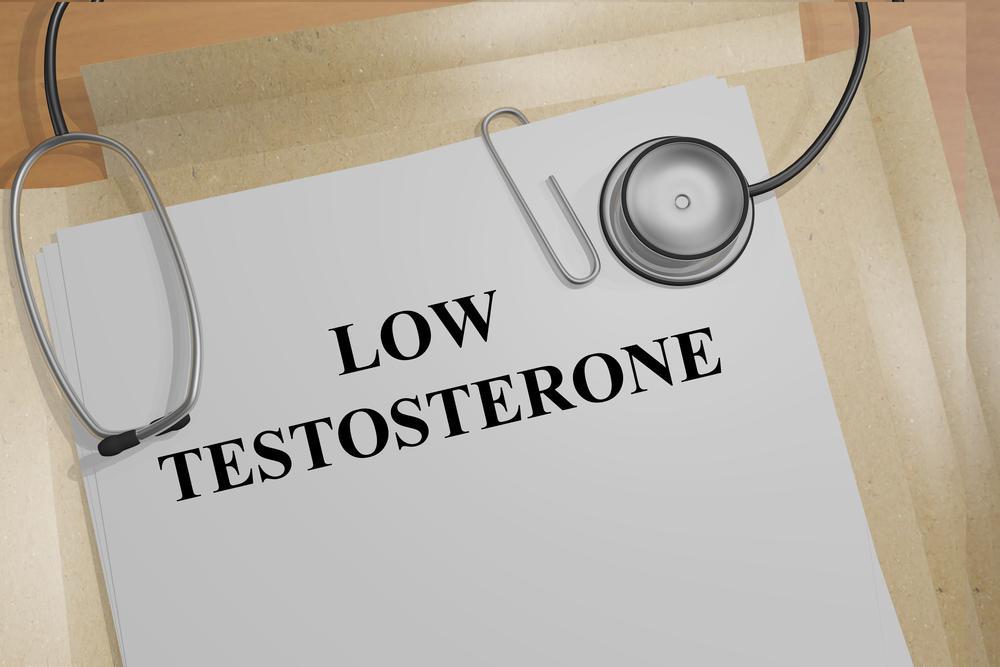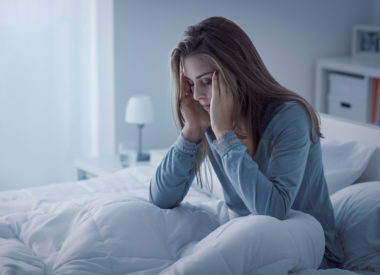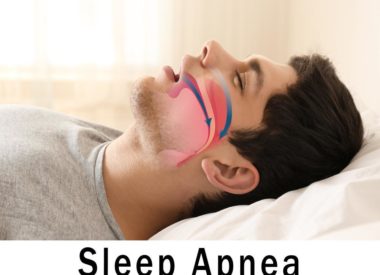Low Testosterone: Signs, Symptoms, Causes, and Risk Factors
Testosterone is a hormone that your body produces. When you have low testosterone (low-T), it means your body isn’t producing enough of this hormone. Although both men and women produce testosterone, men produce it through their testicles. This T-hormone affects the sexual development and appearance in men. It stimulates the production of sperm and his sex drive. It also contributes to building muscle and bone mass.
As men age, their testosterone production starts decreasing. In fact, around two out of 10 men are over 60 years old have low testosterone, according to the American Urological Association. In men who are in their 70s and 80s, this figure increases to three out of 10 men with low testosterone.
Signs & Symptoms of Low Testosterone
There are some common low testosterone symptoms to look out for.
Signs of Low Testosterone in Men
Disturbed Sleep
Disruption in sleep and the fatigue that goes along with it is not always only due to reduced sleep, but also related to the quality of your sleep. There are a number of factors that can alter your sleep patterns. Some common reasons include work, stress and your lifestyle. But, testosterone and poor sleep often go hand-in-hand.
To get the undisturbed, restful REM sleep your body needs you need to have normal testosterone production. However, as time passes sleep disturbance can cause the stress hormone cortisone to increase, which can lead to low T.
Men replenish the testosterone they use each day at night. In older men, progressive decline in hours of sleep has been equated to the progressive lowering of testosterone. Some studies reveal that men with low-T, particularly older men, show more incidences of disturbed sleep patterns. Although low-T affects your overall sleep quality, replacement doses have shown improvement.
Testosterone drops steadily in men who are around the age of 30. As men age, this decline continues. When men reach 40, they tend to suffer from sleep disturbances and this has them wondering why they can’t sleep anymore. Researchers believe this chronological pattern indicates there’s a link between the onset of sleep disturbances and a decline in testosterone. The largest group of men who report disrupted sleep is men older than 50.
Researchers have even said low-T levels alter the way in which the brain “syncs.” Absolute synchronization is needed for the brain to achieve deep sleep. Thus, deficient testosterone levels keep this syncing from occurring and as a result, prevent men from achieving that deep sleep cycle. Lack of sleep then leads to a whole range of other symptoms like fogginess and fatigue.
Changes in Sexual Function
A big concern and common symptom men face with reduced testosterone levels are the potential chance of their sexual performance and desire being affected. As men get older, they may begin experiencing several sexual function-related symptoms that could be due to low-T levels. These include:
- Decreased sex drive
- Fewer spontaneous erections (i.e. during sleep)
- Infertility
Although erectile dysfunction (ED) may occur, it’s not commonly caused by a lower production of testosterone. When ED does occur and is associated with low-T production, hormone replacement therapy could be prescribed to help your ED.
A key role in men’s libido (sex drive) is testosterone. As you age, your sex drive can decline. However, if you have low-T, you’re likely to experience a more extreme drop in your libido.
Inadequate t-levels can also lead to physical changes too. These may include:
- Decreased muscle mass or strength
- Increase in body fat
- Fragile bones
- Tenderness or swelling in breast tissue
- Body hair loss
- Hot flashes
- Cholesterol metabolism issues
Also commonly reported in men with low-T is mental fogginess and fatigue.
Symptoms of Low Testosterone in Women
When you think of testosterone, you likely think of men. However, most people may not consider testosterone as important for women. But, low-T levels can also affect the sexual well being and other health issues of women. Symptoms may include:
Disrupted Sleep
Low testosterone levels in women can also cause a disruption in healthy sleep patterns. Many women who have low-T levels often suffer from sleep apnea, frequent waking, bouts of insomnia and other sleep disturbances in the night.
Weight Gain
Women low in this hormone also often show weight gain. For example, they may lose muscle tissue after experiencing an unexplained, sudden increase in body fat, especially in the abdomen area. Many researchers are now considering low-T levels being the main cause of midlife weight gain in women.
Sexual Changes
Women may experience more extreme and sudden sexual changes with low testosterone. These changes often include reduced libido, painful intercourse due to vaginal dryness and lack of desire for sexual intimacy.
Other symptoms of low testosterone in women include:
- Depression
- Fatigue
- Osteoporosis
- Irregular periods
- Anxiety
- Hair Loss
- Anorgasmia (inability to have an orgasm)
If you notice any of these symptoms, your physician can conduct blood testing and recommend various treatment options.
Causes of Low Testosterone
Low testosterone in men, ( below 300ng/dL ), can result from a variety of conditions, including:
- Testicular cancer or its treatment
- Testicle injury
- Infection
- Obesity
- HIV/AIDS
- Hormonal disorders
- Type 2 diabetes
- Chronic kidney or liver disease
Some genetic conditions and medications can lead to a lower testosterone score in men. Low scores do result from aging. Sometimes, the cause is unknown.
Other causes of low-T include:
Sleep Deprivation
Although low T can cause sleep disruption as mentioned earlier, it can also occur due to poor sleep quality. One 2003-2009 study showed that sleep deprivation in the male study participants lower edt-levels by up to 15 percent.
The Journal of the American Medical Association (JAMA) published this study and reported the impact of a week’s worth of deprived sleep on t-levels in 28 men. Every night for this week, the participants slept for only five hours. This led to a reduction in daytime t-levels. The 15 percent testosterone decline was much higher than the one to two percent average decline due to normal aging.
Risk Factors of Low Testosterone
Low testosterone risk factors range widely and include things from disease and genetic factors to an injury of the testes and normal aging.
When a male baby develops, testosterone helps their sex organs form. It plays an important role during puberty in boys developing into men. The t-hormone builds their muscles, grows the hair on their face and causes their voice to deepen. Testosterone also plays a significant role in their sexual function later in life. Low t-levels can impact partner relationships.
Low testosterone levels don’t just affect your libido and sexual performance. It can also drain the energy out of you, cause depression and make it difficult to concentrate. A lack of this hormone can sometimes cause serious, long-term effects on your body. For instance, men with lower levels of the hormone have been diagnosed with weak bones which potentially cause osteoporosis. This disease makes people more susceptible to injury.
Another study published in the Journal of Clinical Endocrinology and Metabolism also revealed a correlation between low-T to a higher risk of death from heart disease.Your testosterone level is expected to decline as you age. Your doctor may suggest testosterone replacement treatment if you’re experiencing symptoms of low-T. Although results vary, typically you may notice a significant difference within a few weeks. Low T treatment is safe when you’re being monitored carefully.
If you are suffering from sleep apnea as a result of low testosterone levels, you may need to be treated for sleep apnea at our Seattle sleep center, Sound Sleep Health, prior to your low T treatment.
Contact Sound Sleep Health today at (425) 279-7151 today to schedule an appointment!



